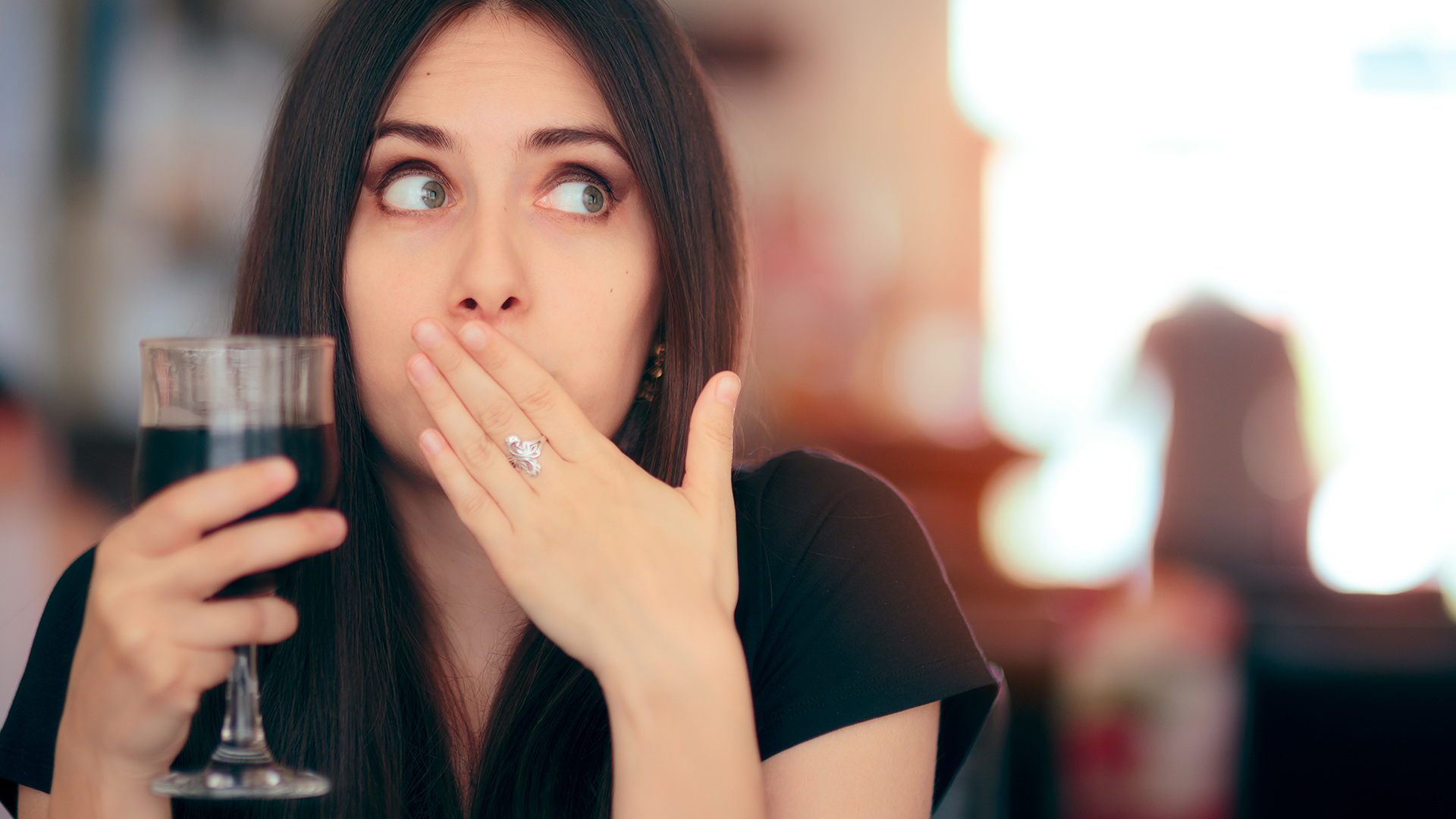Can drinking alcohol really cause hiccups?
"Drunk hiccups" seem to be a real phenomenon, rather than just a gag in classic cartoons, but we know surprisingly little about what actually causes them.

A violent bout of "drunk hiccups" isn't the worst thing that can happen to you after having one too many beers, but it can certainly be irritating.
Drunk hiccups are common enough that, in classic cartoons, a character hiccuping after downing a swig of alcohol is understood as meaning they're intoxicated — but can drinking alcohol really cause hiccups? Or are there other factors at play?
In truth, we know surprisingly little about drunk hiccups. Clinical case reports have indeed suggested a connection between alcohol consumption and hiccups. But Dr. George Koob, director of the National Institute on Alcohol Abuse and Alcoholism, told Live Science he's not aware of any studies that specifically investigate the mechanism behind this phenomenon.
However, there are several theories as to how alcohol might trigger hiccups. One explanation is that ethanol — the type of alcohol in beverages such as beer, wine and spirits — may cause hiccups by disrupting the normal flow of nerve signals in the body.
Related: What does alcohol do to the body?
The characteristic "hic" sound is caused by the sudden closing of the vocal cords due to repeated spasms of the diaphragm, the dome-shaped muscle that contracts and relaxes to pull air into the lungs and then push it back out. As with any other muscle, the diaphragm moves in response to electrical impulses generated by the nervous system.
"Existing papers on the effects of alcohol on the respiratory system support the hypothesis that alcohol impairs the normal functioning of muscles in the upper airway and diaphragm by affecting the communications between nerve cells and muscle fibers, and this can lead to hiccups," Koob told Live Science in an email.
"For example, in one study, the researchers looked at how alcohol affects muscles in the rat diaphragm, and found that ethanol interferes with the transmission of signals between nerves and muscles in rat nerve-diaphragm tissue samples," Koob noted.
In addition, drunk hiccups may be linked to gastroesophageal reflux disease (GERD), a condition in which stomach contents flood into the esophagus. Alcohol relaxes the ring-shaped muscle that separates the esophagus from the stomach, known as the lower esophageal sphincter, and the dysfunction of this valve is a key feature in GERD.
"And while we are not sure whether there is a direct link between alcohol per se and hiccups, we do know that hiccups are more frequent in people with this disorder," Koob said.
Studies suggest that up to 10% of patients with GERD have recurring bouts of hiccups, according to the medical resource StatPearls. Moreover, the risk of developing the condition rises proportionally to alcohol consumption, according to a 2019 meta-analysis published in the journal Alcohol and Alcoholism. However, more research is needed to understand the link between hiccups, alcohol use and GERD.
"It is also important to note, that in addition to GERD, hiccups are more frequent in people with neuropathies [nerve damage], liver diseases, and pancreatic diseases," Koob said. "And alcohol is a leading cause of all of these conditions. So it's possible that improvement of medical conditions caused by problematic alcohol use may also help in resolving the hiccups."
However, in people who don't typically drink much alcohol, an occasional bout of drunk hiccups is likely nothing to be worried about, although the spasms can be a pain to get rid of.
This article is for informational purposes only and is not meant to offer medical advice.
Ever wonder why some people build muscle more easily than others or why freckles come out in the sun? Send us your questions about how the human body works to community@livescience.com with the subject line "Health Desk Q," and you may see your question answered on the website!
Sign up for the Live Science daily newsletter now
Get the world’s most fascinating discoveries delivered straight to your inbox.

Anna Gora is a health writer at Live Science, having previously worked across Coach, Fit&Well, T3, TechRadar and Tom's Guide. She is a certified personal trainer, nutritionist and health coach with nearly 10 years of professional experience. Anna holds a Bachelor's degree in Nutrition from the Warsaw University of Life Sciences, a Master’s degree in Nutrition, Physical Activity & Public Health from the University of Bristol, as well as various health coaching certificates. She is passionate about empowering people to live a healthy lifestyle and promoting the benefits of a plant-based diet.










